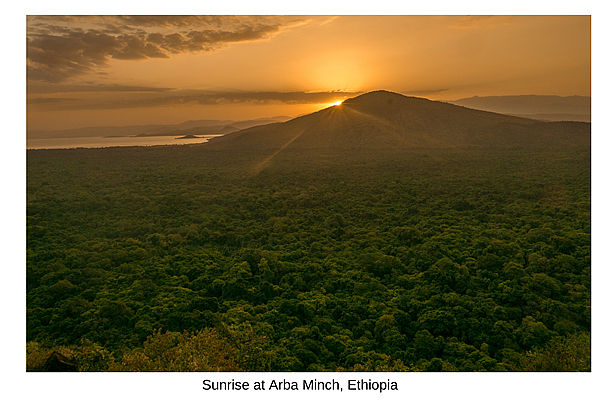 Ethiopia: The Cradle of Humanity, Woven with Timeless Traditions
Ethiopia: The Cradle of Humanity, Woven with Timeless Traditions
A country that stands proudly isolated from the world in its unique cultural tapestry, Ethiopia offers a journey that transcends typical tourism.
A trip to this land is like turning the pages of a vividly illustrated history book, where each page holds a fascinating chapter of ancient civilization, unique traditions, and breathtaking landscapes.
Ethiopia, the oldest independent country in Africa, is regarded as the cradle of humanity, home to the oldest human remains ever discovered. It is where the crossroads of Africa, the Middle East, and the Mediterranean converge, resulting in a rich and intricate cultural mosaic that thrives amidst the country's rugged mountains and fertile valleys.
The rock-hewn churches of Lalibela, a remarkable testament to Ethiopia's age-old Christian Orthodox faith, stand as silent witnesses to man's indomitable spirit and architectural genius. The medieval castles of Gondar, often referred to as the 'Camelot of Africa,' echo tales of a grand past, while the ruins of Aksum, once the seat of an ancient empire, hold secrets of a civilization that was trading with faraway lands like India and China while Europe was still grappling with the Dark Ages.
The highlands, veiled in mystery and shrouded by ancient legends, invite travelers to explore stunning mountain ranges, crystal clear lakes, and endemic wildlife. The Bale Mountains are home to the Ethiopian wolf, the world's rarest canid, while the Simien Mountains, often described as 'the chess pieces of the gods', offer some of Africa's most dramatic hiking experiences.
For a short video introduction of Ethiopia, click below
Visa Requirements
Most nationalities can apply for an e-visa online before arrival, or obtain a visa on arrival at Addis Ababa Bole International Airport. However, regulations can change, so it's best to check with your nearest Ethiopian embassy before travel.
Currency
The currency of Ethiopia is the Ethiopian Birr (ETB). Credit cards are not widely accepted outside major hotels and restaurants, and it's advisable to carry a sufficient amount of local currency for your expenses.
Language
Amharic is the official language of Ethiopia, but English is widely taught in schools and is commonly spoken in major cities and tourist areas.
WiFi and SIM Cards
Internet connectivity can be patchy outside of major cities. SIM cards can be purchased at the airport on arrival, and top-up cards are available throughout the country. Do note that internet speed may be slow and certain social media sites might be blocked.
Health and Safety
Ethiopia is generally safe, but petty crime like pickpocketing can occur in crowded areas. Health-wise, it's recommended to be up-to-date on routine vaccines. Malaria is a risk in some parts of the country, and travelers are advised to take necessary precautions.
Last but not least
Here's a trick for an authentic Ethiopian experience: try a traditional coffee ceremony. Ethiopia is the birthplace of coffee, and the ceremony is a time-honored practice that involves roasting the beans on the spot, brewing them in a clay pot called a jebena, and serving the coffee in small cups. It's a ritual that exemplifies Ethiopian hospitality and offers a perfect opportunity to engage with local culture.
